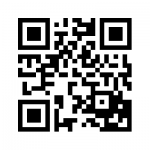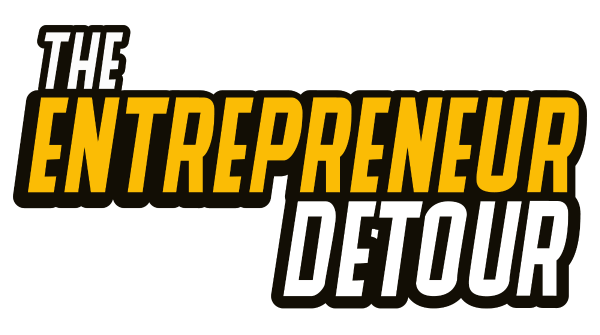Chapter One
THE JOURNEY OF AN ENTREPRENEUR

The Journey of an Entrepreneur
In May of 1983, I was preparing to graduate from California Polytechnic State University in San Luis Obispo. In a few weeks, my life was going to transition into the real world. For the first time since I was five years old, I would not be going to school in the fall.
I’d planned to spend the summer with my friend Alan Meyers, who lived in London, and then work somewhere fun for a year before getting a real job. That meant I could enjoy my last few months of freedom in Europe and then move to Hawaii so I could goof off for a year. That plan was my graduation gift to myself.
I had it all figured out: since I was a Certified United States Tennis Academy Teaching Professional and a Black Belt Karate Instructor, I’d teach tennis during the day at a nice resort and, at night, I’d teach karate. I thought working at a resort would help in my pursuit of one day owning a health club, and teaching karate would give me extra cash because I knew the cost of living in Hawaii was high.
A DEFINING MOMENT
On May 17, while lying in bed in my college apartment, my plans for my immediate future dramatically changed. I woke up to the voice of Ruth Carter Stapleton, the sister of former president Jimmy Carter, being interviewed on a TV show. She was talking about her battle with pancreatic cancer and how the doctors had given her only a few months to live.
What captured me was that this unbelievable lady was at total peace with her situation. I wondered, “How in the world is this woman able to handle what she’s going through with such courage and grace?” Suddenly, touring Europe for the summer and spending a year improving the tennis game of pretty ladies in a tropical paradise seemed selfish and small-minded.
Lying there in bed, I had a radical conversation with myself. Allow me to share a bit of my journal. Some of the thoughts I had were:
To be or not to be? That is not the question. Where in the world did that thought come from?
Am I going to be the kind of person I really want to be? That is the question.
I want to be the type of person that is a positive influence in the lives of others.
What if I went ahead and went to London but didn’t go to Hawaii? What would I do instead? Hmm.
What if I spent that year focusing on actually learning how to become a better person instead of focusing on having fun? Interesting.
What would that look like? How would I pull that off? Haven’t a clue.
How would developing strong character in my life really benefit me?
Remember, this was the early 1980s—before self-help icon Tony Robbins and the personal development movement had taken hold of our culture. This was before everybody ran around quoting the German philosopher Frederick Nietzsche (not my favorite thinker, but even those we don’t like can come up with wise thoughts), who once said, “He who has a why to live for can bear almost any how” (emphasis added).[i] Our “why” is the thing that motivates us to get up every morning and work a little harder to get a little better.
Most people know how to focus on what they have to do. Some people know how they need to do it. But very few people know why they do what they do.
Do you know what the thing is that has the ability to push you even on the days when all you want to do is pull the covers over your head and retreat from the world?
“What has the ability to push you?”
@realKevinCortez #EmbraceTheDetour
At twenty-three, I sure didn’t know my why. I had no idea as to what purpose, cause, or belief inspired me to do anything. I didn’t know what it was that I really wanted to do and who it was that I really wanted to be. I just knew that if I started moving in a direction that might provide some answers, I would hopefully figure things out as I went.
On May 17, 1983, I completely adjusted my future. That decision was reinforced in my mind four months later when Ms. Carter died. To this day, it still fascinates me how one person’s courage can alter someone else’s life in less than five minutes.
After my summer in England (Thank you, Alan), I packed up everything I owned into my 1976 Chevrolet Monza 2+2 hatchback and moved from California to Dallas, Texas. I planned to attend a Leadership and Bible Institute for one year and then decide what to do next. You can judge me. It’s cool. That’s the only thing I could think of at the time. (Whoops, I ended up going back to school after all!)
This was the first major decision I’d ever made in my life that was not based on what others thought I should do. Understandably, this didn’t go over too well with my mom and dad, but just like they had always done, they supported my decision. Oh man, I won the lottery having them as my parents!
While all my friends were advancing in their chosen careers, I was studying such subjects as Practical Christian Living, Leadership, Issues of the Heart, and Character Development. When I would talk to my buddies, they’d tell me about the new cars they were driving and the nice places they were living. That wasn’t my reality. I was learning about Wisdom and Guidance, Financial Stewardship, The Disciplined Life, and Interpersonal Relationships.
I’ll admit: talking to my friends stung a bit, especially since I was making $4.50 an hour and eating ninety-nine-cent tacos at Jack in the Box every other day. (That’s one unhealthy way to lose twenty pounds). But I believed what I was doing would help me in the long run. What started out as my one-year experiment to better understand myself and life in general turned into eight years.
As I look back, I can honestly say that giving up most of my twenties to focus on understanding why my life unfolded in the way it had, not to mention increasing my self-awareness, has been one of the best decisions I’ve ever made. On the surface, it looked as though I was falling behind others my age. But it has become a tremendous advantage in several areas of my life, including professionally.
FAILURE IS REAL
To keep up with all of my classes, work, and personal life in Dallas, I put together a small three-ring binder with sections to organize everything. This binder became my first real business venture. I called it the “Overcomers Organizer.” It was divided into seven sections, each designed to complement the other. It was my “personal blueprint for success and achievement.” Do you like the nice tagline I came up with?
This planner was actually the first Christian organizer which involved integrating a person’s faith into goal-setting, daily planning, and journaling that I’m aware of to have been brought to market. From what I can tell, it was a precursor to the Franklin Planner system published that following year.
As I was getting ready to pull together my first small batch of binders to sell, I shared my business idea with a fast-talking media guy named Bob. He was one of those guys who was constantly bouncing from thought to thought, daring you to keep up. He’d been hired to fill a national Christmas gift catalog with products. Bob told me he would feature my planner in that catalog. I only had to produce a large quantity of organizers before the catalog was released to the public. Why? “So, we’ll have the inventory on hand when all those people rush to order your organizer,” he said.
I was super pumped, but there was one problem: I had no money to do what Bob said needed to be done. I’d gotten a raise at work to six dollars an hour, but that wasn’t enough to help me “go big.” The only place I could think of that had that kind of money was a bank.
So, I set up an appointment with a bank president I’d met a few months earlier named Wendell. As I sat in his beautiful office, I asked him if he had any advice. He liked me and my business idea so much that he gave me a commercial loan to finance the entire project. Wendell said he would personally sign off on the loan, especially since the planner was going to be featured in a prominent catalog in a few months.
I became a real entrepreneur that day. Little did I know what kind of an adventure I was in for. I experienced the highest high the day the truck pulled up to the front of my duplex and dropped off pallets of my Overcomers Organizer. But that feeling was short-lived.
A few days later, I called Bob to let him know that I now had the inventory in stock and everything was set on my end. He said not to worry about that because he had changed his mind and decided to put a pretty necklace in my spot in the gift catalog.
So much for someone’s word being their bond. Note-to-younger-self: get things like this in writing in the future.
Being an entrepreneur is great—except when it’s not. In one gut-wrenching moment, my highest emotional high was replaced with a devastating new low. That was my welcome to entrepreneurship: a jump-spinning kick to the teeth.
Failure is real. The bruises of that defeat would linger for years.
“Being an entrepreneur is great—except when it’s not.”
@realKevinCortez #EmbraceTheDetour
I sold several of those organizers, but sales were not even remotely close to what I needed in light of my on-hand inventory versus the outstanding commercial loan I was responsible for. Thankfully, after several extremely stressful months, I was able to sell all of my remaining organizers to a wonderful man in New Mexico who absolutely loved the planner. I sold them, along with the publishing rights, at cost. This was the first of many entrepreneurial detours I’d experience over the years.
Interesting fact: I now see that a very similar planner was launched in 2015, and it looks like it’s become a big success. I guess I was just thirty years too early.
THE MARKET DOESN’T CARE
Part of enjoying your entrepreneur journey is understanding that detours are inevitable. Far too often, we fail to understand our detours and, as a result, we wind up viewing them with a wrong perspective. All entrepreneurs experience setbacks, failures, letdowns, and obstacles.
How can we tell if we’re correctly looking at detours? Easy. When we experience impatience, bitterness, regret, or doubt, we need to adjust our focus. Rather than allowing the detours to show us what lessons need to be learned or what opportunities the detour may have created, we allow all that is wrong to consume our thoughts. This hinders our progress and sets us back, sometimes permanently.
When we don’t grasp what we needed to learn from leaving the main route, more detours are needed to get us to our destination. It can become a vicious cycle. Have you ever had your GPS keep rerouting you and it seemed like you were going in circles? It’s like that.
For example, I looked at my Overcomers Organizer experience as a test. The whole thing let me know where I stood in the world of being an entrepreneur. It identified some things I needed to learn and some skill sets I needed to develop—like don’t ever believe a fast-talking man named Bob. Since I didn’t pass that particular test, I obviously needed to adjust my perspective so when the next test (opportunity) came my way, I’d have some clarity on what decisions I should make so I could pass it.
Some people may be able to “test out” of an entrepreneurial class because they have what it takes to pass the exam. They have enough experience to skip the rest of the assignment. We all know people who are just plain gifted and seem to make things look easy. (Don’t you just hate people like that? Kidding.) Unfortunately, most of us have to go through the learning process—some of us more often than others—in order to gain what is needed to move our businesses forward.
Whether through uncontrollable circumstances or the consequences of wrong choices, everyone has experienced unforeseen changes in life. Are you at the place you want to be on your entrepreneurial journey?
If not, are you making excuses so you don’t have to make necessary changes? Please realize that you probably have much more control than you think. It may not feel like it, but you do.
The market is only interested in making money. Does the market care about you and your challenges? In French: non. In Spanish: no. In English: nope. In German: nein. The sooner you realize that the market isn’t interested in making the process easy for you, the sooner you will start doing what you know you have to do. Actually, the best way to think about it is: the market is the decision-maker; the Internet is the gatekeeper.
“The market is only interested in making money.”
@realKevinCortez #EmbraceTheDetour
THE SHIFT
Are you familiar with the term the gatekeeper? If you were to Google “how to get past the gatekeeper,” you would find around 2,680,000 results. If you’ve had any form of sales training, you will undoubtedly have had training on how to get past the person (gatekeeper) responsible for people gaining access to the decision-maker. Typically, this is a personal assistant or a secretary, but in some companies it can be the receptionist or person answering the phones.
If you were an entrepreneur before social media networks, you were at the mercy of the Gatekeeper. This middleman had absolute control. But now, thanks to technology, the Internet is the middleman, and we have way more control than we used to. We can directly engage with the market through social engagement and digital marketing. That is a huge shift from how things used to be. Today, with your smartphone, laptop, and an Internet connection, you can win.
Think about it: Where is everyone’s attention being directed these days? Generally speaking, it’s the Internet. Or, more specifically, our smartphones.
It’s crazy for me to think that around eight-in-ten Americans use social media to connect with one another, engage with news content, share information, shop, and entertain themselves.[ii] And it’s not slowing down, as more and more people are adopting this behavior every single day.
Since the Internet is where our attention is, don’t you think it’s important to have an effective marketing strategy that takes this into account? For me, that was an extremely difficult detour to take. I had to acknowledge that my twenty-plus years of traditional broadcast marketing experience was no longer as relevant as it once was. Here’s the unalterable truth: the market is the market. I had to let go of my ego and learn an entirely different way of marketing and brand development. Ugh.
As you read the following pages, my hope is that you are encouraged to see how I handled some things that flipped my world on its head. Learn from my setbacks so you too can move forward, avoid some of my mistakes, and #EmbraceTheDetour!
[i] Friedrich Nietzsche, Twilight of the Idols, (New York: Penguin Classics, 1990).
[ii] “Percentage of U.S. population with a social media profile from 2008 to 2017,” statista, https://www.statista.com/statistics/273476/percentage-of-us-population-with-a-social-network-profile.
Chapter Reflections
Feel free to answer these questions on my Facebook page at facebook.com/realKevinCortez. I would love to hear from you.
1. I spent most of my twenties focusing on increasing my self-awareness. Have you spent any focused time on trying to figure out why your life unfolds the way it does?
2. What is your why? What has the ability to push you?
3. As you consider your entrepreneur journey, how have you been affected by the unexpected challenges that showed up?

Scan the QR code for bonus content.

